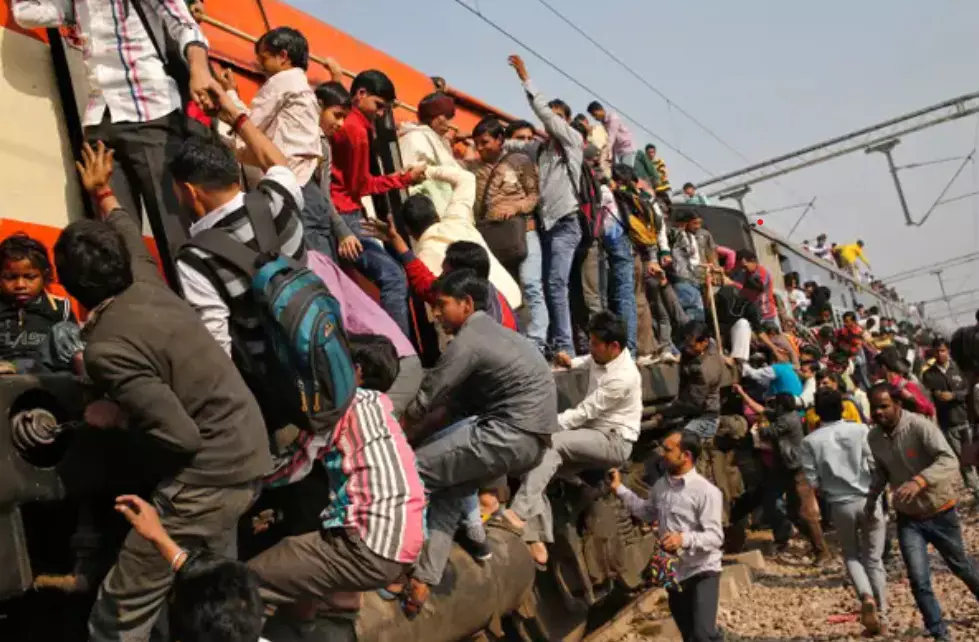The Indian travel conundrum
This festive season made it tough for migrant workers to get home; how do we keep ticket prices in check?

Who doesn’t want to be home during the festive season? The life of a migrant worker (whether white collar or blue) can get awfully lonely with familial ties striking emotional chords. Whether it’s Diwali or Chhath, Durga Puja or Pongal, thousands of migrant workers go back home every year to celebrate with their kith and kin. Especially after the pandemic, those few days with near and dear ones seem most precious. But it isn’t always an easy journey home as depicted by the numerous videos, pictures, and passenger testimonials that came out this year.
The Indian Railways, long considered the country’s lifeline connecting the length and breadth of our vast and diverse country, choked in the festive rush and received a lot of flak. Crammed trains, filthy toilets, allegations of bribe-taking lower level staff allowing people to travel without a ticket, passengers swooning due to suffocation, and even a death — that of a 30-year-old aboard an overcrowded special train to Bhagalpur (Bihar). Passengers jostling for space, travelling 30 hour-journeys packed like sardines in lavatories, repetitive stampede-like situations — those were unsavoury sights during a time of happiness and celebration.
Tumbling out were also allegations that the Indian railways have increased AC coaches while reducing general sleeper class. News reports suggest that for a while now, the Indian Railways has been replacing sleeper or second-class coaches with AC ones. Fewer general coaches would mean lesser chances of passengers getting reserved tickets and being forced to pay more for AC berths or illegally boarding AC coaches with unreserved general class tickets and crowding the existing general class coaches. The end result was pandemonium as was witnessed a few weeks ago.
Contrary to the news reports, the government has denied the reduction of non-AC coaches, stating that the standard configuration has stayed the same. The Indian Railways also said that more special trains will have plied between October 1 and December 31 this year (6,754) than last year (2,614). So what led to the mismanaged and woeful state of travel? A stunning increase in the number of passengers. Between October and mid-November, the government says that almost 36 lakh people have travelled on Indian trains, which is purportedly more than double of last year. But take a closer look at the other data from the Indian Railways — between April and October 2023, 95.3 per cent of all passengers travelled in general and non-AC sleeper coaches while only a paltry 4.7 per cent travelled in AC coaches. While it’s good business to urge passengers to cough up more for AC seats, maybe they simply can’t afford it or want to restrict expenses. If more and more people opt for non-AC travel, how does the Indian Railways plan to manage future peak travel seasons?
It’s not any better up in the skies either. Airfares skyrocketed to unfathomable heights in the Diwali week, touching almost 89 per cent on key routes. Grounded Go Air planes and fewer Spicejet flights led to increased demands for air tickets and heated prices. According to online travel portal, Ixigo, the average one-way airfare on the Delhi-Ahmedabad route for the Diwali week, for example, was 72 per cent more than last year. Similarly, other key routes witnessed a jump of anywhere between 63 per cent and 89 per cent. This was for tickets that were booked well in advance over 80 days ahead of travel. Even during lean periods, airfares have reported scalding prices. As per the study by Airports Council International (ACI) Asia-Pacific alongwith Flare Aviation Consulting, India clocked the steepest airfare rise globally — a whopping 41 per cent!
The only way to cope with the swelling volumes of passengers would be to add more special trains and perhaps even increase the number of general coaches during festivals and holidays. Opening up the booking process much in advance and gauging the likely demand could help the railways plan better. Ultimately, expanding existing capacity by manufacturing and increasing the number of trains while maintaining quality and safety checks should also be in the long-term action plan. To keep airfares in check, the aviation ministry would intermittently have to advise airlines to check their surge prices ensuring fair and ethical prices. A similar meeting in June this year had drastically reduced the spot fares. Increase in air capacity, restarting of stalled airlines would also ease pressure. At the end of the day, citizens have to be kept front and centre because not all can pay for expensive tickets, but all have a right to travel safely and with dignity. Otherwise, with fewer general seats and airfares continuing to be on fire, it will be a long, impossible way home for the common man.
The writer is an author and media entrepreneur. Views expressed are personal




